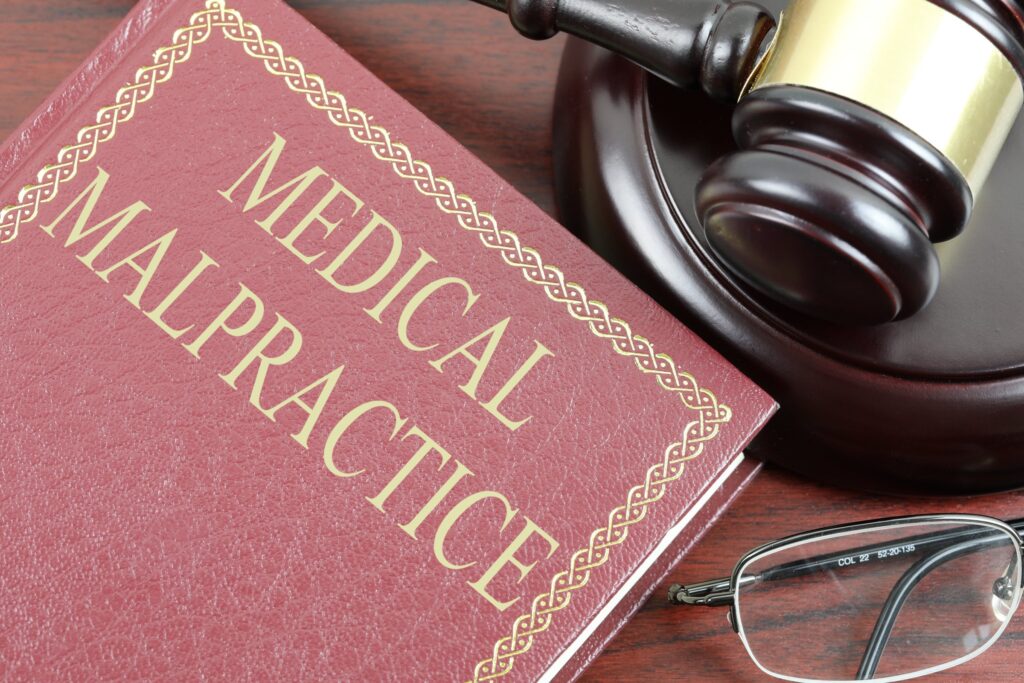Contents
Introduction: Medical Negligence and Your Legal Options
Medical negligence, also known as medical malpractice, occurs when a doctor, nurse, hospital, or other healthcare professional provides improper, substandard, or negligent treatment that causes harm, injury, or death to a patient. Medical negligence is unfortunately a common issue that affects countless patients every year, often with devastating consequences.
When medical negligence occurs, patients have legal options and may be entitled to pursue compensation by filing a medical malpractice lawsuit. This guide provides an overview of medical negligence claims and helps injured patients and families navigate the complex legal system to determine if they have a case and find the right medical malpractice lawyer.
Understanding the Impact of Medical Negligence
Medical negligence can result in significant harm with long-lasting physical, emotional, and financial impacts. Some potential consequences include:
- Permanent disability or loss of mobility: Errors during surgery or treatment can cause damage and impairment.
- Chronic pain: Mistakes leading to nerve damage or other issues may result in ongoing, intractable pain.
- Loss of limbs or organs: Surgical mishaps can necessitate amputation or organ removal.
- Birth injuries: Errors during labor/delivery can inflict devastating harm to infants.
- Death: Medical negligence is estimated to cause over 250,000 deaths per year in the U.S.
- Post-traumatic stress: The experience can inflict lasting emotional trauma.
- Lost income: Injuries may prevent someone from working, causing financial strain.
- High healthcare costs: Additional treatment is often needed to address preventable mistakes.
The physical, mental, and financial toll of medical negligence can be overwhelming. An experienced medical malpractice lawyer can provide critical support, advice, and legal representation to help patients and families pursue deserved compensation.

Taking Action After Medical Negligence
If you suspect you or a loved one experienced medical negligence, it is important to act quickly due to strict legal time limits. Key steps include:
- Consult a medical malpractice attorney immediately. There are tight deadlines for filing claims, known as statutes of limitations. An attorney can review the details of your case and advise if you have grounds for a lawsuit.
- Gather and preserve all relevant medical records. Your lawyer will need access to these documents. Don’t allow originals to be lost or destroyed.
- Avoid signing any releases or settlements from the provider. This may waive your rights or limit your ability to take further legal action. Refrain from direct negotiation until speaking with counsel.
- Secure recommendations for expert witnesses. Your claim must prove substandard care through qualified medical expert testimony. Your lawyer can obtain referrals to appropriate specialists.
- Seek medical treatment to document your injuries. This creates a record of the harm caused by the negligence. Tell all subsequent providers about previous errors.
- Keep detailed records of the impact on your life. Document additional healthcare costs, lost income, pain and suffering, and other damages for your claim.
Thorough records and prompt legal advice are critical, as cases must typically be filed within 1-3 years. An experienced medical malpractice lawyer can evaluate your case right away to begin the process.
Building a Strong Medical Negligence Claim
Medical malpractice cases involve complex litigation with a high burden of proof. Your lawyer’s specialized expertise is key for building a compelling claim by:
- Gathering medical records to demonstrate improper or negligent treatment.
- Identifying all potentially liable defendants. This may include individual providers, clinics, hospitals, etc.
- Consulting medical experts to analyze records and provide testimony about substandard care.
- Proving causation. Your attorney must establish a direct link between the provider’s negligence and the resulting harm.
- Quantifying damages through careful documentation of all related costs, losses, and pain/suffering.
- Filing within the statute of limitations to avoid having your case dismissed due to delay.
- Navigating strict procedural rules for medical malpractice litigation.
This requires extensive legal experience. Do not attempt to handle such a complex claim without a qualified medical malpractice attorney on your side.

Seeking Compensation in Medical Negligence Lawsuits
In successful claims, injured patients may recover various forms of monetary compensation, or damages, including:
- Economic damages to cover quantifiable losses like medical bills, rehabilitation costs, lost wages, etc.
- Non-economic damages for harder-to-quantify impacts like pain and suffering.
- Punitive damages in cases of egregious misconduct.
Your lawyer will seek full and fair compensation through settlement negotiations or trial. Many cases settle out of court, but your attorney must be ready to take your case to trial if needed to maximize your recovery.
Finding the Right Medical Malpractice Attorney
Pursuing a medical negligence claim requires a highly specialized attorney with proven expertise in this unique and complex area of law. Key tips for finding the right lawyer include:
- Get referrals from trusted sources like other lawyers, friends, or patient support groups.
- Verify medical malpractice focus and experience. Ask about years in practice, case results, experience with your specific injury/error.
- Research credentials, ratings, and certifications. Ensure they are licensed in your state and respected in the field. Look for ABA or state bar association certifications in medical malpractice law.
- Understand how they communicate and work with clients. Look for responsiveness, clear guidance, and customized legal strategies.
- Ask about fee structure. Many offer free consultations and handle cases on contingency, collecting fees only if you win compensation.
- Check for valid malpractice insurance. This protects you if any legal error occurs.
- Go with your gut. Find someone you connect with and who makes you feel comfortable and confident.
Building a close, trusting relationship with your lawyer provides critical long-term legal guidance and support throughout your case and recovery. Don’t go it alone—connect with a skilled medical malpractice attorney for personalized advocacy and counsel.
Additional Resources on Medical Negligence
Below are several reputable organizations that offer general information on medical malpractice. Always remember that every case is different, and these resources are not a substitute for individualized legal advice:
American Bar Association: Medical Malpractice Resources and FAQs
Medical Board: Patient Safety and Medical Errors
Mayo Clinic: Medical Malpractice
Call a Knowledgeable Lawyer Today
If you or a loved one suffered harm from medical negligence, please reach out to a qualified medical malpractice attorney in your area today. An experienced lawyer can evaluate your potential claim, advise you of your rights, and provide skilled legal representation tailored to your specific case. Justice and compensation may be within reach—contact a compassionate medical malpractice lawyer to begin pursuing the outcome you deserve.
Scott A. Bentley Attorney at Law in McHenry, IL is a debt relief and personal injury attorney dedicated to helping people in their time of need. He can assist in filing bankruptcy under the bankruptcy code or work with you through a personal injury case. His more than 25 years of experience provide him with the insight and knowledge you need when contending with difficult legal issues. Scott Bentley bankruptcy services stop: Creditor harassment, Lawsuits, Garnishments, Foreclosures, Repossessions, By filing for chapter 7 or 13 bankruptcy with Scott Bentley, you’ll also be able to create personal reorganization plans that serve to resolve individual bankruptcy issues. He and his staff are committed to providing you with dignified service and the respect you deserve. Just because you owe someone or some company money doesn’t mean you forfeit your rights. With Mr. Bentley you can be sure you will receive personalized attention and aggressive legal representation. The firm is proud to
